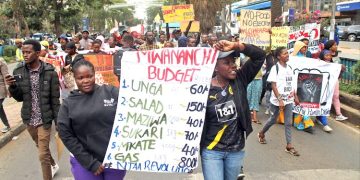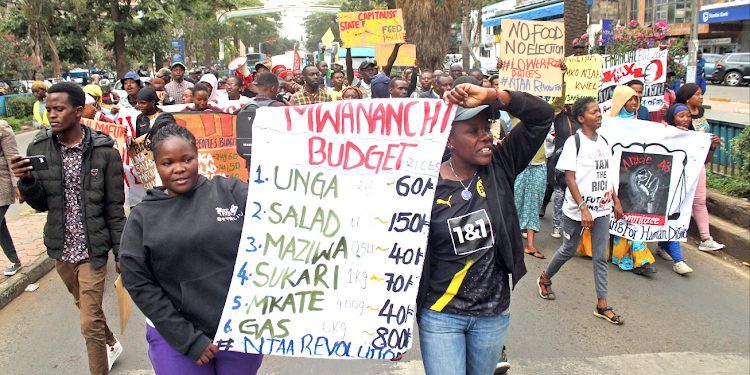By Ebi Kesiena
Activists leading Kenya’s anti-government protests are reconsidering their strategy after Tuesday’s demonstrations were marred by violence and looting.
These incidents have raised concerns that the movement’s credibility could be undermined, weakening its efforts to pressure President William Ruto to resign. Activists allege that the violence was instigated by “goons” hired by politicians to discredit legitimate protestors or further their own agendas.
On Wednesday, some activists took to social media to call for the cancellation of the next planned demonstration for Thursday.
Meanwhile, Interior Minister Kithure Kindiki stated on Tuesday that “criminals” were exploiting the planned protests to “commit arson” and “terrorize” Kenyans. He warned that further violence was being planned for Thursday and Sunday and asserted that the government was determined to stop it “at whatever cost.”
According to the Kenya National Human Rights Commission, the two weeks of protests have resulted in 39 deaths, though President Ruto on Sunday cited the number as 19, the protests have turned deadly, with police opening fire on demonstrators.
President Ruto has offered to engage in dialogue with Kenyan youth and has promised budget cuts on travel and hospitality for his office, aligning with some of the protesters’ demands. Despite high unemployment and rising prices, there has been public outrage over the luxurious lifestyles of the president and other senior officials.
However, members of the youthful but leaderless protest movement have expressed distrust in the president’s commitment to implementing his new plans.
Kenya’s main opposition party on Tuesday called on Ruto’s government to take responsibility for the deaths that occurred last week.
Also, Economist Ken Gichinga told the Associated Press that the government should adopt a different approach to tax reforms to allow the economy to thrive. “The Gen Zs are the most affected by unemployment,” Gichinga noted.
Kenya National Human Rights Commission chairperson Roseline Odede informed journalists that the protests had been infiltrated and that the “demographics had changed,” resulting in increased violence.




































